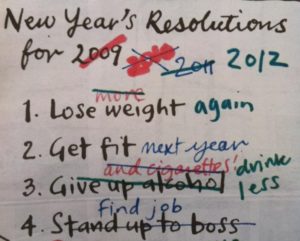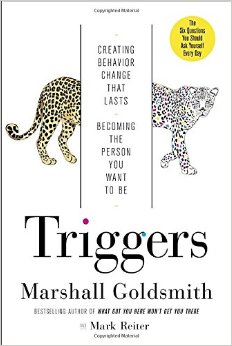 So your New Years’ resolution didn’t work? Want to know why?
So your New Years’ resolution didn’t work? Want to know why?
There are two schools of thought about how we act in such situations.
School A purports that humans are one entity with the ability to shift from one transaction style to others at will, smoothly and seamlessly. For example, in the morning I can be motivated, communicative, and open to ideas; by the afternoon I have morphed into the Kim who seems to want isolation, resistance, and argument. It’s just who I am.
School B says each human is made up of several completely different personalities and that the situation at hand dictates which one presents. This transition from one to another is not seamless, however, but absolute. In other words, one is not part of the other, so it’s rather like flicking a switch than a smooth and gradual transition. Have you ever watched a co-worker, friend, or loved one go from sweetness and light to Attila the Hun in an instant? Perhaps you’ve wondered it happens with you!
So which school is right? Do we morph or instantly become a different person?
My mentor, Jut Meininger, convinced me to believe we are not simply one person who veers off course every once in a while but are instead multiple people with separate and distinct motivations, agenda, styles, vocal tonality, facial expression, and even lexicon.
Over the past 14 years of writing this newsletter, I’ve termed at least two of these personas as the Knower/Judger and the Learner/Researcher.
When I am my K/J, I am confident, forward, sure of myself, demonstrating that confidence, judging, and ‘right.’ I know everything I need to know. I know what I (and others) should do and how I (and others) should behave. As long as I am among other like-minded K/Js, then life is good. From this persona, you can’t teach me anything because I already know it. At peak intensity, I can be described as “childish.” I can be satisfied because what’s happening meets my understanding of what should be happening; I’m dissatisfied when it doesn’t.
Conversely, when I am my L/R, I am inquisitive, loving, trusting, open to ideas other than my own, listening, learning, intuitive, creative, and even inspirational. I see what’s happening as data, not something to be corrected or even agreed with. I can be happy because I choose to be so, and I can be unhappy by the same mechanism.
See how difficult it would be to both K/J and L/R at the same time?
My K/J is a culmination of all the things I’ve assembled it with. Knowledge, of course. But also prejudices, rules, morality, shoulds, have-tos, reactions, etc. The culmination is what simplifies day-to-day interactions so I don’t have to think about them. It’s how my brain tells me what to do in circumstances.
I rely on my K/J every time I can because, well, it’s the easy button. Switching to my L/R takes more energy and presence than I sometimes possess.
But here’s the secret.
My friend Mary Lore of managingthought.com fame has a saying: “You are not your brain.” And I’ll add ”unless you want to be.”
Mary is saying that we do not HAVE to do what our [K/J] brain tells us to do every time, all the time. We can use the brain as a tool to improve the situation or our lives. But we do have to be aware of what’s happening and CHOOSE to switch to our L/R in order to accomplish something different from what we will get if we stay in our K/J.
And let’s face it. I KNOW I get in most touchy situations when I stay in my K/J. It’s the same repetitive dialog because nobody switches to L/R to suddenly be more open and negotiable: e.g., “Did.” “Did not.” “Did too!”…
So why your New Years’ resolution didn’t work? Because of your K/J.
Your resolution most likely revolved around changing something your K/J has already cemented in your brain. E.g., “Go ahead and eat that donut,” or any of a number of habits you’ve adopted over the years.
I’d argue that the brain involved in making a New Years’ resolution is probably K/J. (I can imagine myself saying something like “I should resolve to lose 15 pounds starting January 1.”)
I agree with Mary. We are not our brains, but they are a tool. We can use them to our benefit when we choose to function in our L/R. I believe everyone has experienced moments of L/R, perhaps even weeks, while maintaining a focus on the benefits of a specific outcome requiring changing a K/J rule or expectation.
And if/when we lose motivation, or focus on the big goal, or energy, or get stressed out, the best intentions of staying in L/R can be lost as the K/J takes over again… in three to four weeks… or right about now.
We can even cast aside one of our strongest habits by choosing to make this an L/R decision and not roll with the K/J.
Happy New Year!




